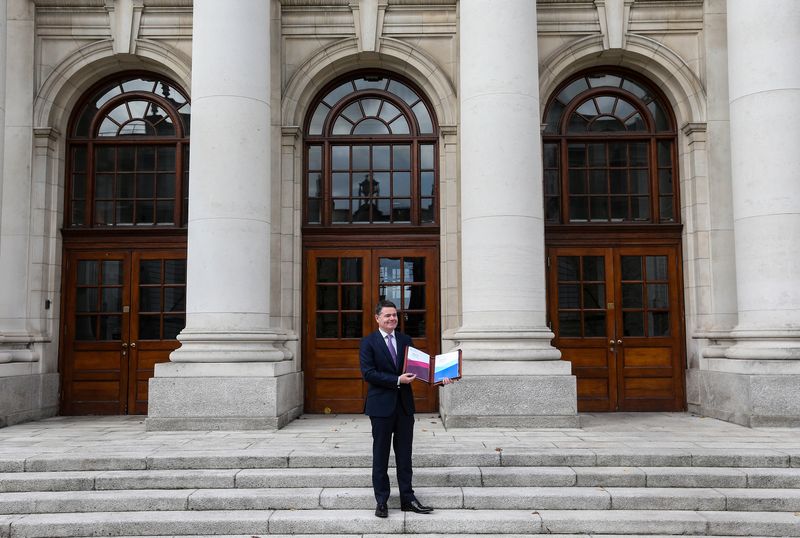BRUSSELS (Reuters) - Fiscal support for the euro zone economy will diminish next year as the recovery strengthens, the chairman of euro zone finance ministers Paschal Donohoe told the European Parliament's economic committee on Wednesday.
"It is reasonable to assume that the level of fiscal support will be lower than what it is now. This is the logic of fiscal rules and makes sense when the recovery is in a more advanced stage," Donohoe said.
The European Union suspended its limits on government borrowing in 2020, 2021 and 2022 to help governments deal with the unprecedented shock of the COVID-19 pandemic that caused the deepest recession in Europe since World War Two.
But the EU plans to reinstate borrowing limits from 2023, although with modifications that will reflect the sharp rise in public debt caused by the pandemic as well as the need for huge annual investment to fight climate change.
Also, the pace of reducing fiscal support is likely differ from country to country next year.

"Country-specific circumstances will be taken into account," Donohoe said.
"We will want to avoid cliff-edge effects stemming from abrupt or excessive fiscal consolidation. We have learned since the previous crisis that debt sustainability is not served by stifling growth and investment," he said.